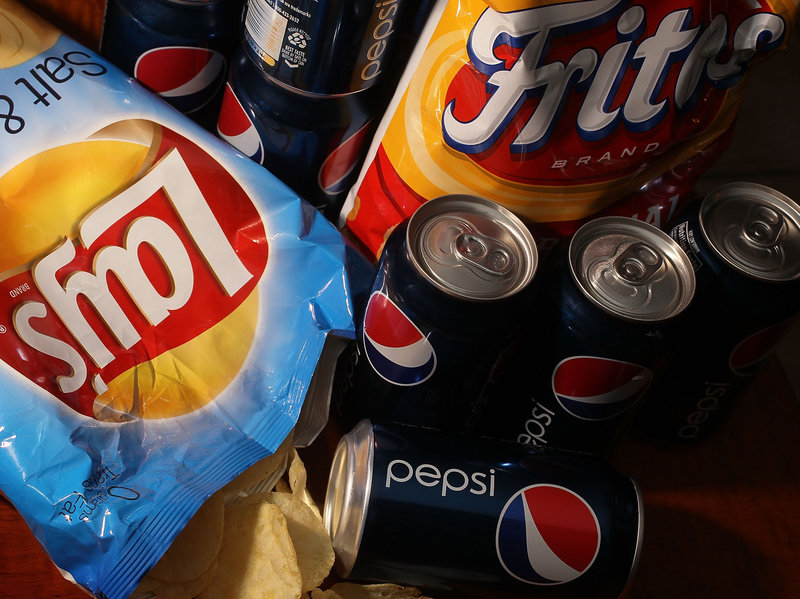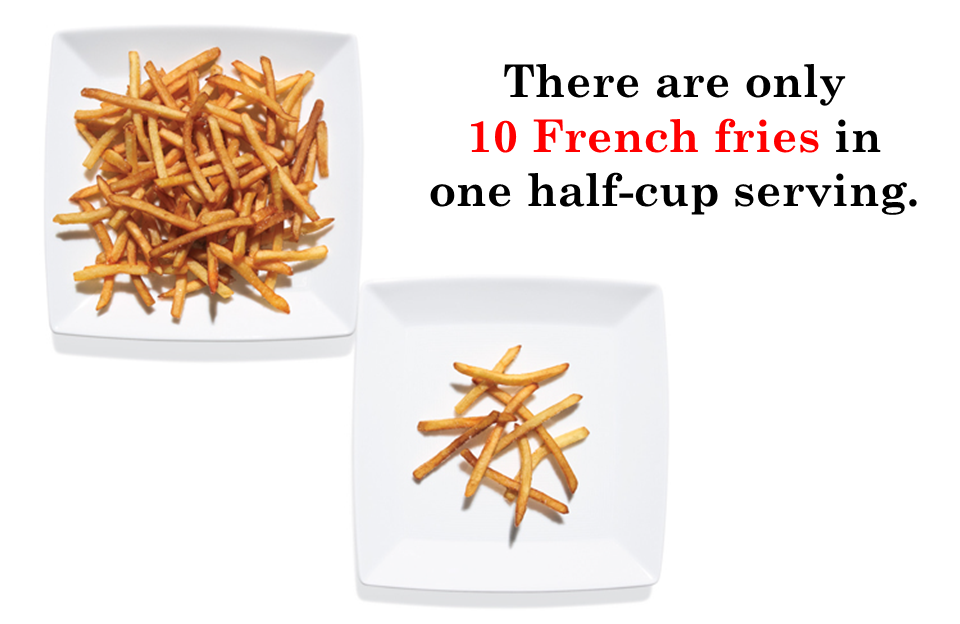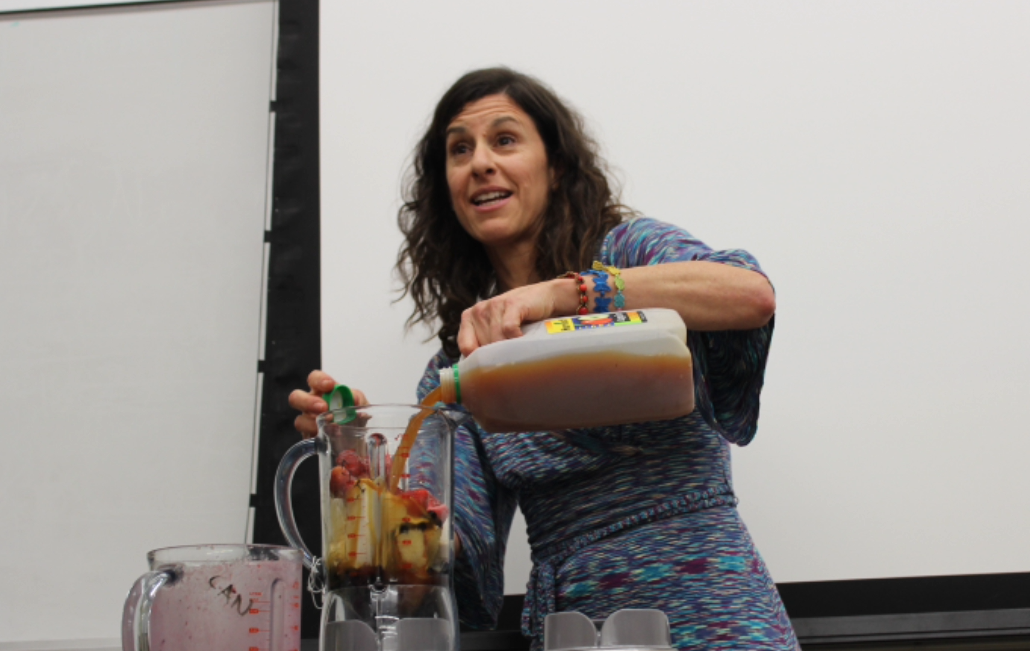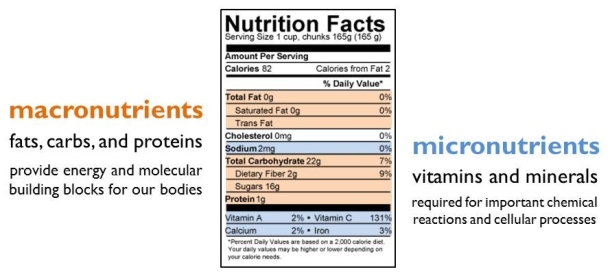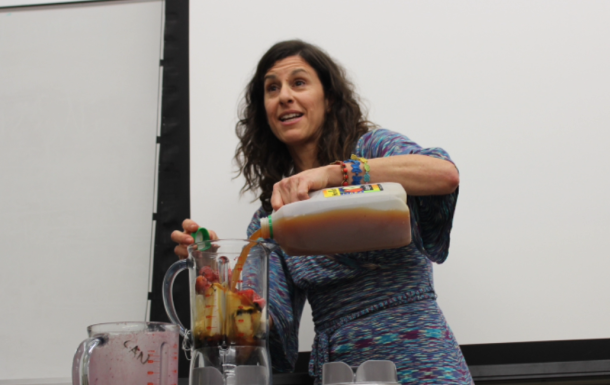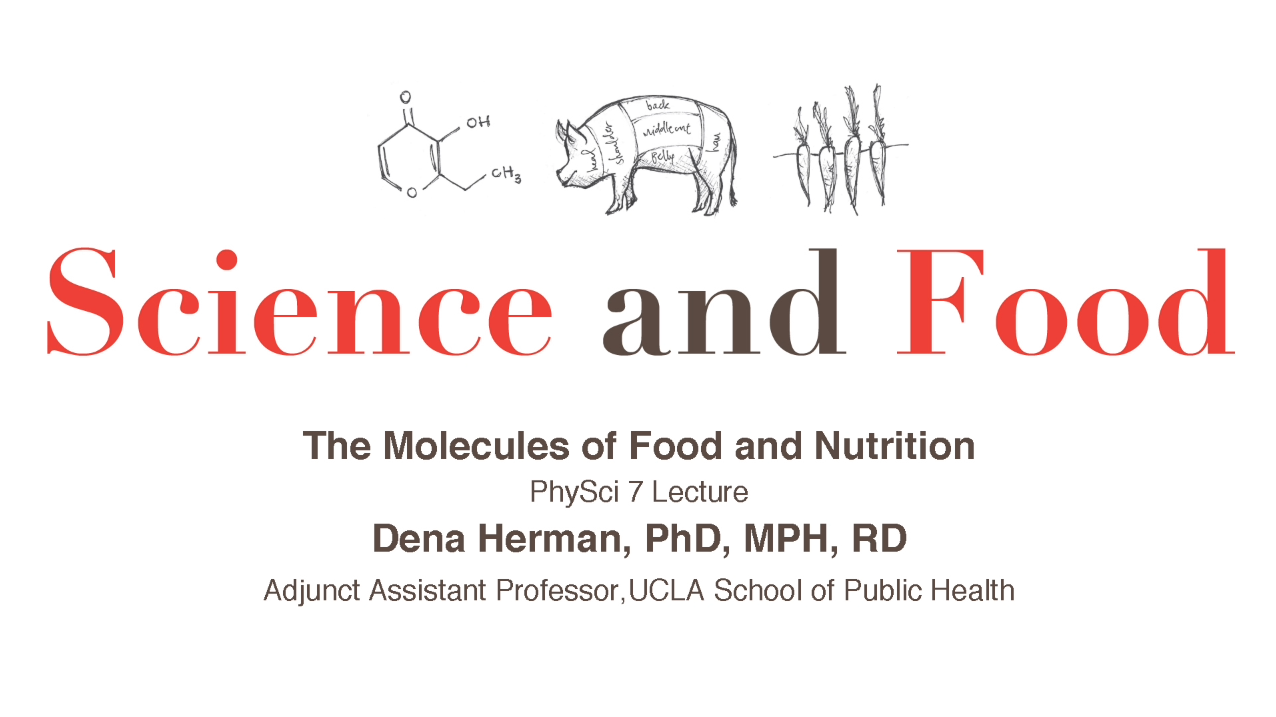Eve Lahijani
Eve Lahijani graduated from UCLA with a B.A. in Economics and Business and went on to earn her Masters in Nutritional Science at CSU Los Angeles. She is now a registered dietitian for Vitamineve, a nutrition counseling service, and a nutrition health educator at UCLA. Eve’s Fiat Lux seminars on body image and proper nutrition have given many UCLA freshmen the tools necessary to maintain a healthy relationship with food.
- What hooked you on cooking?
- I love learning about eating behavior. What, how and why people eat is intriguing to me. Especially when the eating is not related to physical hunger.
- The coolest example of science in your food?
- The process of denaturing an egg white and turning that into a soufflé is like magic to me.
- The food you find most fascinating?
- Ice cream is cool. Couldn’t help myself with that pun 🙂 I do appreciate the endless array flavors, textures, colors and combinations that can be created!
- What scientific concept–food related or otherwise–do you find most fascinating?
- How complicated eating behavior and food has become for some people (especially in harmful ways including over and under-eating and other compulsive eating behaviors) – and each individual’s process of understanding, simplifying and ultimately healing their relationship with food.
- Your best example of a food that is better because of science?
- I love Boysenberries and they are a blackberry/raspberry hybrid. Thank you science! And of course seedless watermelon.
- We love comparing the gluten in bread to a network of springs. Are there any analogies you like to use to explain difficult or counter-intuitive food science concepts?
- Yes: Eating in a balanced way is like a pendulum in a grandfather clock. You know, it swings back and forth. If the pendulum swings really far in one direction, due to the laws of physics it will swing far back in the opposite direction. Same holds true with eating. That is, if someone restricts (or goes on a diet) it pushes the pendulum too far in one direction so the better someone gets at depriving themselves the more likely the pendulum would swing far back in the opposite direction which may result in binges, cravings or overeating.
- How does your scientific knowledge or training impact the way you cook? Do you conduct science experiments in the kitchen?
- I like to plan to have well balanced meals that include components that bring about satisfaction. So I like to make sure my cooking involves carbohydrates, protein and fat – as well as fruits and vegetables. My science experiments include cupcake decorating along with trying new recipes with ingredients I get from the farmers market.
- One kitchen tool you could not live without?
- Sharp knife
- Five things most likely to be found in your fridge?
- Oranges, soy milk, Brussels sprouts, peanut butter, eggs and garlic so I guess that’s six!
- Your all-time favorite ingredient?
- Does chocolate flavored coconut ice-cream count as a food ingredient?
- Your standard breakfast?
- It’s always evolving. Right now I am into a mushroom, onion and garlic omelet or whole grain waffles with peanut butter. Whatever I choose I usually include some fruit and/or milk.



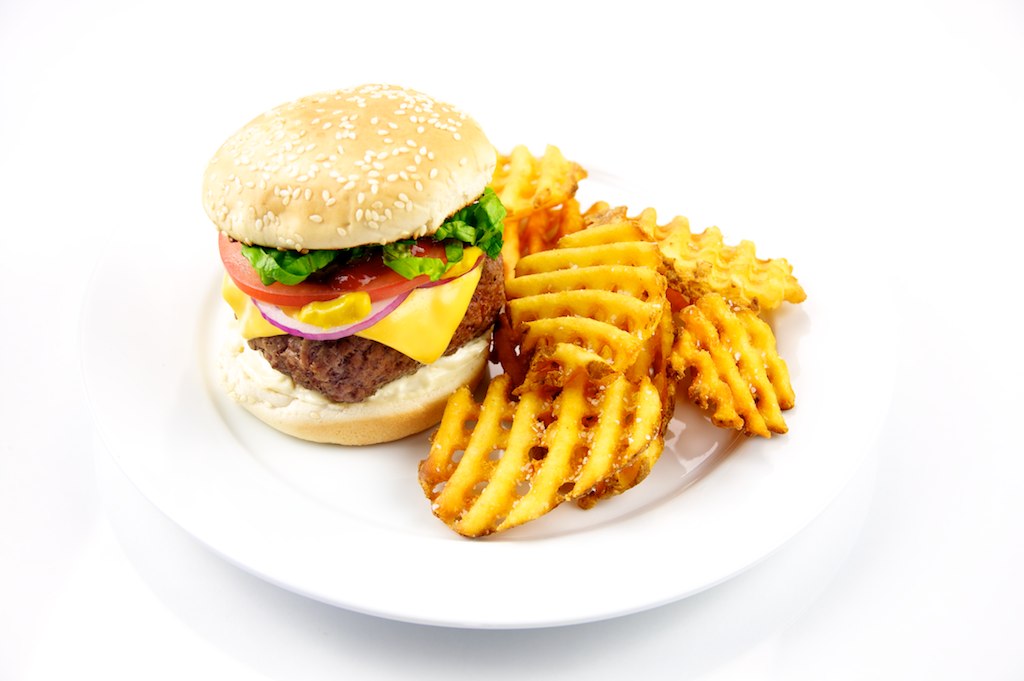
![Cheeseburger with Fries [photo credit: TheCulinaryGeek]](https://scienceandfooducla.files.wordpress.com/2015/06/5076301075_29f16bcccb_o.jpg?w=660)


